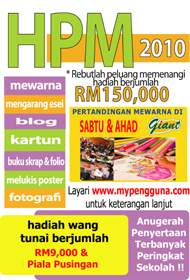 The Government should stop subsidising the price of sugar since sugar is nothing less than a toxic substance.
The Government should stop subsidising the price of sugar since sugar is nothing less than a toxic substance.
The recent 20 sen increase in each kilo of sugar means that the government will still end up subsidising a sinful sum of RM1 billion in 2010, based on a subsidy of 80 sen per kilogram. Malaysians consume an average of 26 teaspoons of sugar per day. This sweet indulgence has resulted in nearly 1.2 million Malaysians with diabetes, more than 98% with Type 2 diabetes, which is strongly linked to high sugar consumption.
- It is not a basic necessity and its consumption is most harmful to one’s health.
- With the total withdrawal of subsidy, the price of sugar will increase by 80 sen per kilogram but this should not lead to a drastic increase in the price of sugar-based food and drinks.
- Based on our calculations, the cost of the main ingredients in a cup of teh tarik and Milo is about 28 sen and 45 sen respectively, though they are sold at RM1.00 and RM1.20 respectively.
- The subsidy mainly benefits the manufacturers of fizzy drinks and sugar-based food products.
- Countries like the Philippines, Indonesia and Thailand have a per capita income that is lower than Malaysia yet they pay more for their sugar.
- The RM1 billion subsidy can be better used to help fund programmes to eradicate poverty and for the improvement of public health.
-
Impose a sin tax for sale of high-sugared, high-fat and high-salt foods; -
Bring to a halt the advertisement of highly-sugared and other junk foods and drinks during children’s television viewing hours. Children are susceptible to media pressure. -
Educate school children on the dangers of excessive sugar intake through health education, home science and cookery lessons. -
Educate the public on the dangers of sugar intake through the media (television, radio and press). -
Encourage children to avoid sweet drinks in schools by providing drinking water in water dispensers around school premises. Sweet drinks should not be sold in school canteens. -
Have a total ban on the sale of junk food in school canteens. -
Ban food hawking within a fixed perimeter around schools so that schoolchildren are not tempted to consume unhealthy foods. -
Put an end to child-height confectionary displays at supermarkets and grocery stores which are usually placed near checkout counters to attract children. -
Initiate the removal of vending machines dispensing junk food and sugary drinks from areas such as hospitals, airports and schools.Sumber: http://consumer.org.my












0 Responses so far.
Post a Comment